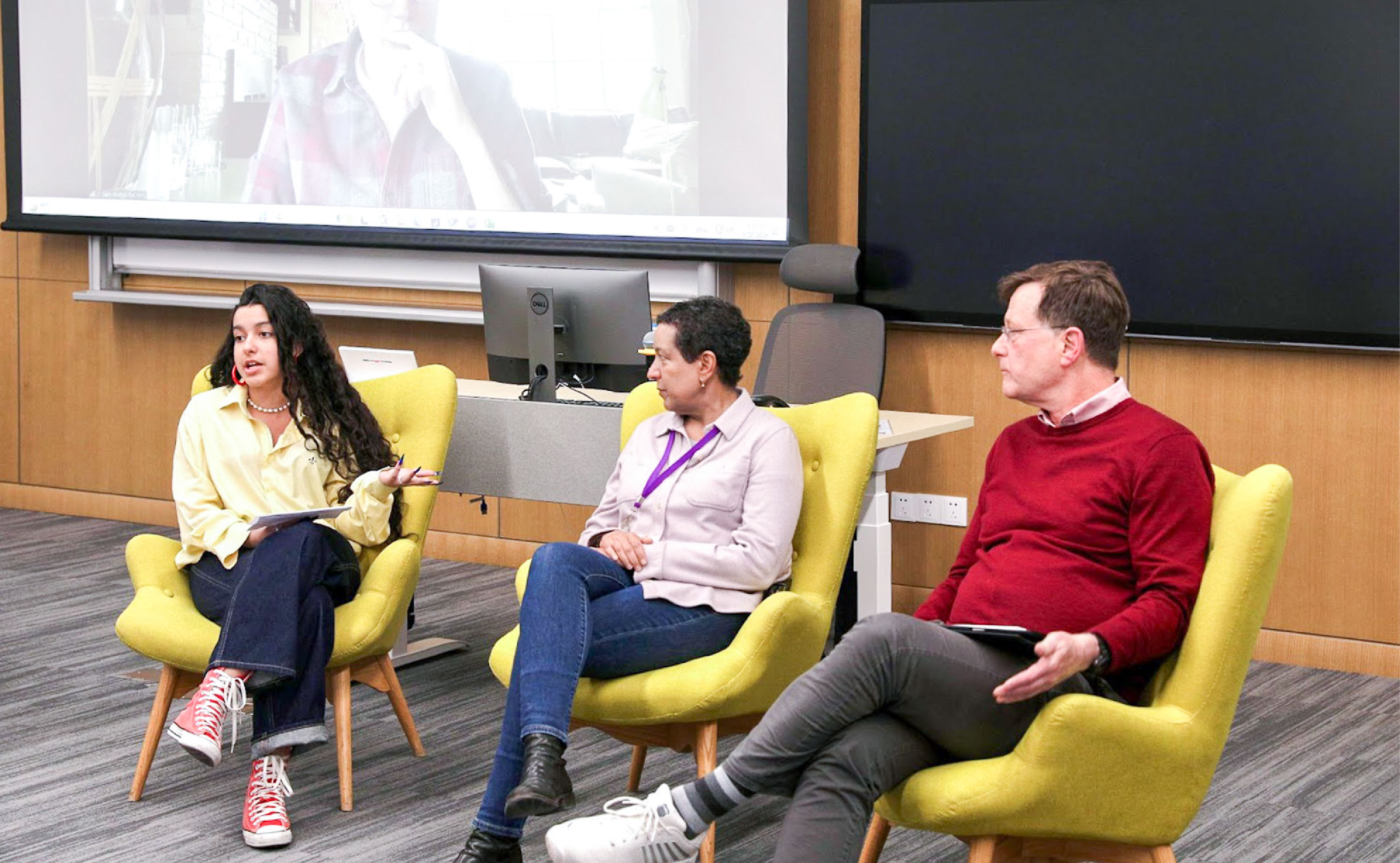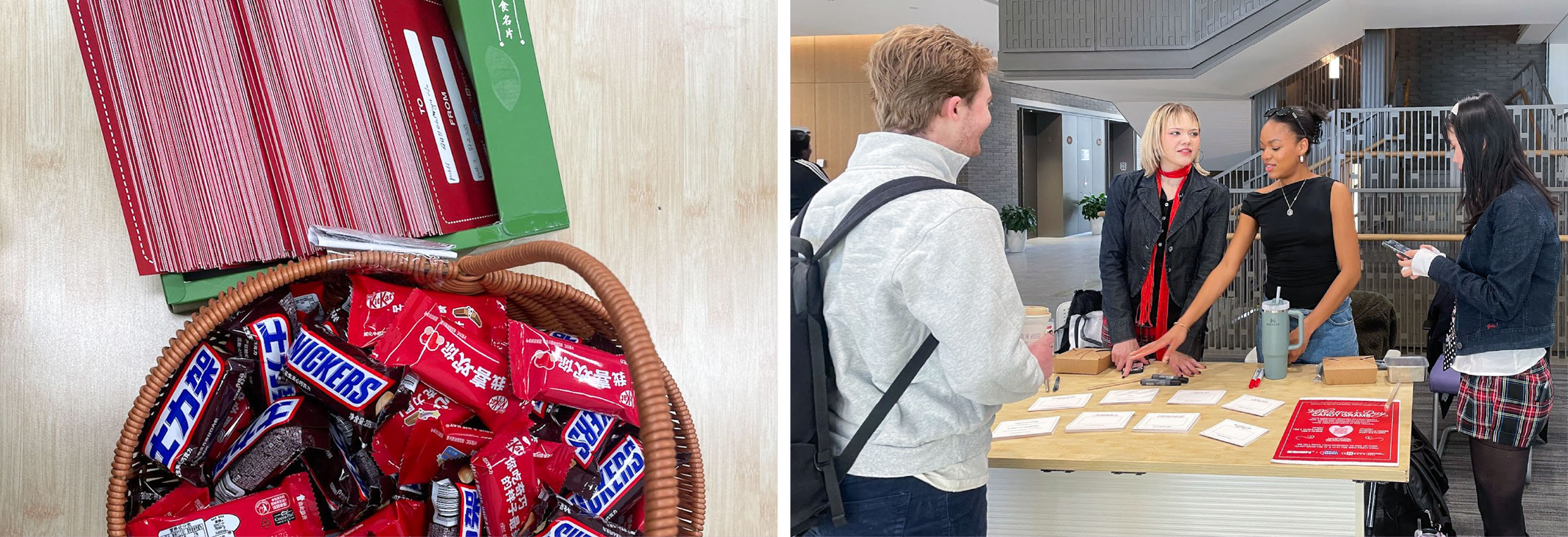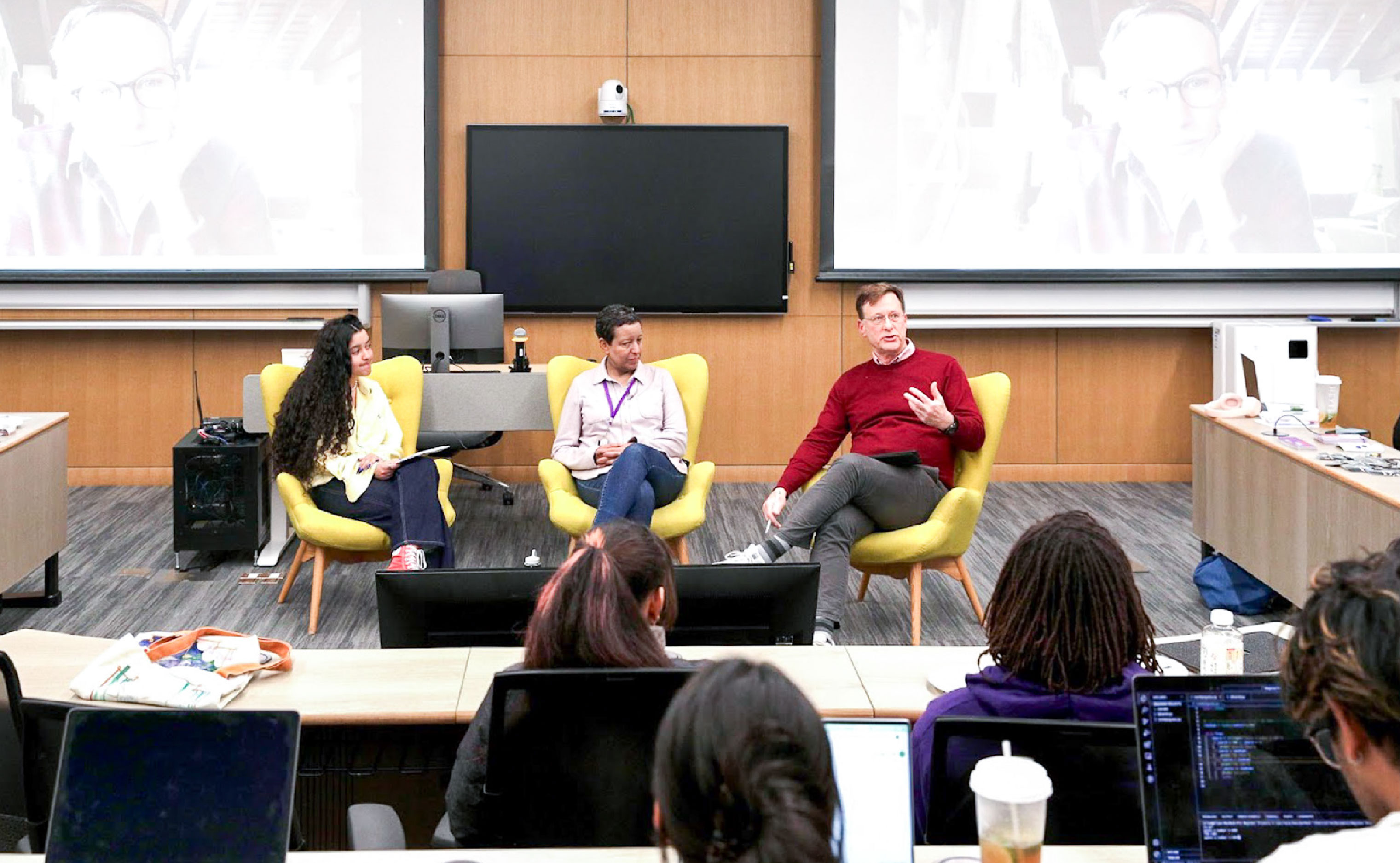Sex…it’s a topic that’s bound to push us out of our comfort zones. For some students, attending university is the first time they’re learning about sexual health, the importance of consent, and setting and respecting boundaries.

But talking about these topics doesn’t need to be weird. The Sexual Respect Committee, a new student-led group working with NYU Shanghai’s Center for New Student Programs, hopes to increase access to sex education and Title IX resources, facilitate conversations about healthy relationships, and provide peer-to-peer support.
Center for New Student Programs Director Shelly Lu said the committee came about as an extension of the “Let’s Talk About Sex” session held annually during Orientation Week. In that session, student Orientation Ambassadors role-play scenarios between intimate partners at a university involving consensual sex, boundary setting, and reporting misconduct.
“Many students noticed that there is only a sexual respect orientation in their first year and no training later on, so they felt it wasn’t enough,” Lu said.

In the 2024 fall semester, Lu and her team met the demand for more dialogue on the topic by launching a student-run committee tasked with helping their peers demystify topics surrounding sex and relationships. Ari Harris ’27 said he joined the committee because he was interested in challenging the negative views he was taught about sex growing up in a Mormon community in Panama City, Florida.
“Sex is just very taboo, and generally it's perceived in a very negative way,” he said. “I just wanted to understand where that [negative stigma] comes from and go from there.”
The group has hosted a series of events that facilitate conversations and questions surrounding romantic relationships, love language, attachment, and power dynamics.
Their first event, Sex in the City, created a safe space for people to openly talk about sex, or share thoughts they had about the role of consent in intimate relationships.
“I learned how diverse the school really is, and how many different opinions, perceptions, and beliefs there are surrounding this topic,” Harris said.
But with diversity of cultural backgrounds and worldviews comes some barriers to cross-cultural communication, said Sexual Respect Committee Chair Audrey Merchak ’27. “Developing relationships within the student body is complicated because people don't talk about their expectations or their feelings,” she said. “And so we wanted to create a space where people would be able to get resources and access to Title IX resources, but also learn about how to set proper boundaries and how to establish healthy relationships in this global environment.”
Merchak’s own involvement in the committee stems from her experiences in high school participating in extracurricular activities working with marginalized women in her home country of Brazil.
“I thought that my experience with feminism and dealing with victims could help and perhaps bring some new insights to the conversation,” she said.

Last month, the committee hosted an event with NYU Title IX Coordinator Samuel Hodge. Hodge led a workshop breaking down the key legal changes to Title IX and implications for students, faculty, and staff. Afterward, Professor of Practice in Political Science Almaz Zelleke and Professor of Practice in Law Stephen Harder joined for a moderated discussion exploring the broader implications of these updates for the NYU Shanghai community.
The committee is also working on helping revise content for Orientation Week materials related to sexual respect and intimate relationships. Li Aijia ’25 said the committee decided it was time for an update and adjusted the script to place greater emphasis on consent, validation, and nuances of sexual expression.
“This is not only about heterosexual students. It's about people of all sexualities, and we adjusted it to be more inclusive for people who are in the queer community,” she said. “It's just a good starting point to realize we can openly discuss sex on this campus.”
Looking ahead, there are plans to host events and film screenings throughout the academic year to create a space for questions to be raised and resources to be shared. Future events will focus on addressing cross cultural barriers, male sexual health, language, and labels.


